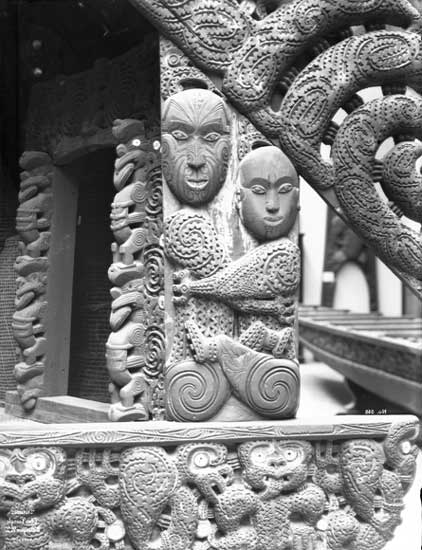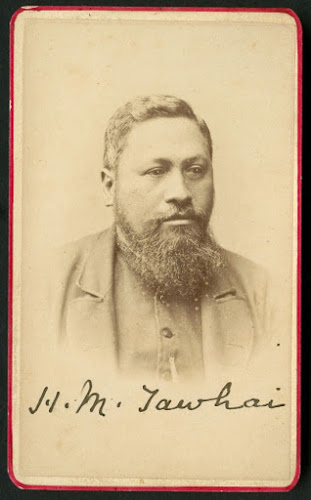The Sham Ultimatum to Waikato Maori
Amidst the
various references to the 150th anniversary of the invasion of
Waikato on 12 July were many that referred to an ultimatum ‘issued’ to the
Waikato tribes on 11 July 1863, that is, one day before British troops crossed
the Mangatawhiri River. That ultimatum declared that:
Europeans quietly living on their own lands in Waikato have been driven away; their property has been plundered; their wives and children have been taken from them. By the instigation of some of you, officers and soldiers were murdered at Taranaki. Others of you have since expressed approval of these murders. Crimes have been committed in other parts of the island, and the criminals have been rescued, or sheltered under the color [sic] of your authority.You are now assembling in armed bands; you are constantly threatening to come down the river to ravage the settlement of Auckland, and to murder peaceable settlers. Some of you offered a safe passage through your territories to armed parties contemplating such outrages.The well-disposed among you are either unable or unwilling to prevent these evil acts.I am therefore compelled, for the protection of all, to establish posts at several points on the Waikato River, and to take necessary measures for the future security of persons inhabiting that district. The lives and property of all well-disposed people living on the river will be protected, and armed and evil-disposed people will be stopped from passing down the river to rob and murder the Europeans.I now call on all well-disposed Natives to aid the Lieutenant-General to establish and maintain these posts, and to preserve peace and order.Those who remain peaceably at their own villages in Waikato or move into such districts as may be pointed out by the Government, will be protected in their persons, property, and land.Those who wage war against Her Majesty, or remain in arms, threatening the lives of Her peaceable subjects, must take the consequences of their acts, and they must understand that they will forfeit the right to the possession of their lands guaranteed to them by the Treaty of Waitangi, which lands will be occupied by a population capable of protecting for the future the quiet and unoffending from the violence with which they are now so constantly threatened.
Many of the
allegations levelled against the Waikato
tribes were demonstrably false. Grey and his ministers had already determined
some weeks earlier to invade Waikato and were
looking to justify that decision.
But it is
less the contents of the ultimatum that I am interested in here than the timing
of it. In fact, as I showed in a recent article, though the ultimatum was dated
11 July 1863, it was still being drafted two days later — a day after troops
had already entered the Waikato (see ‘Choosing Peace or Waikato: The 1863
Invasion of Waikato’, New Zealand Journal
of History, Vol. 47, No. 1, 2013). The former Waikato Civil Commissioner, John Gorst,
also confirmed that the nominal date of 11 July was a fiction, recalling that:
This date is fallacious. I met
the messenger, carrying the first copies printed in the native language, on the
evening of July 14th, at dusk. He was then on the road between Auckland and Otahuhu, and did not reach Waikato
until after the battle of Koheroa, which was fought on the 15th.
In other
words, the ultimatum was a retrospective one, issued after troops had already
invaded the Waikato. The ultimatum had been
intended mainly to suggest that the Crown went to war reluctantly, only after
all other options had been exhausted, and after Waikato Maori had been given
full opportunity to comply with the Crown’s demands. But they hadn’t. It was a
sham ultimatum, issued to provide a fig leaf of decency for the lie that this
was a just war.



Comments
Post a Comment